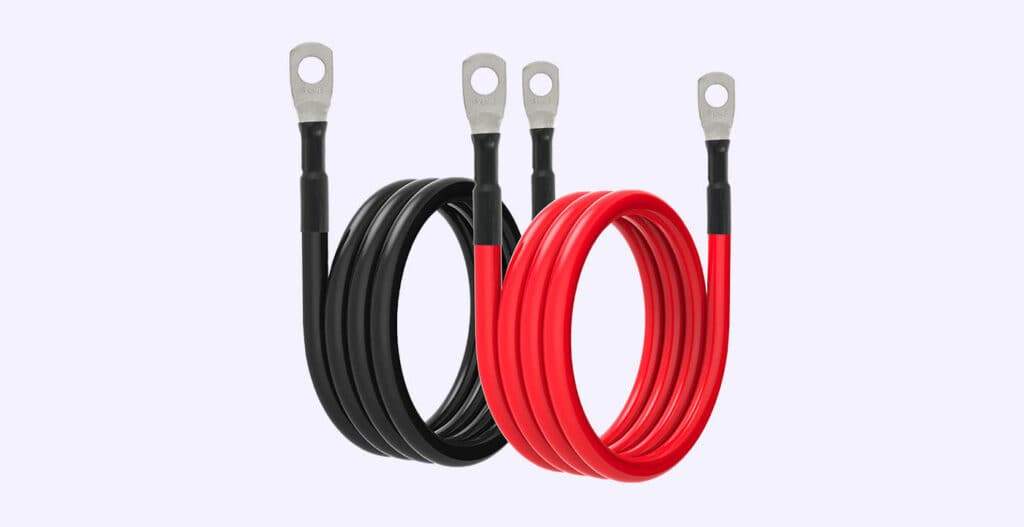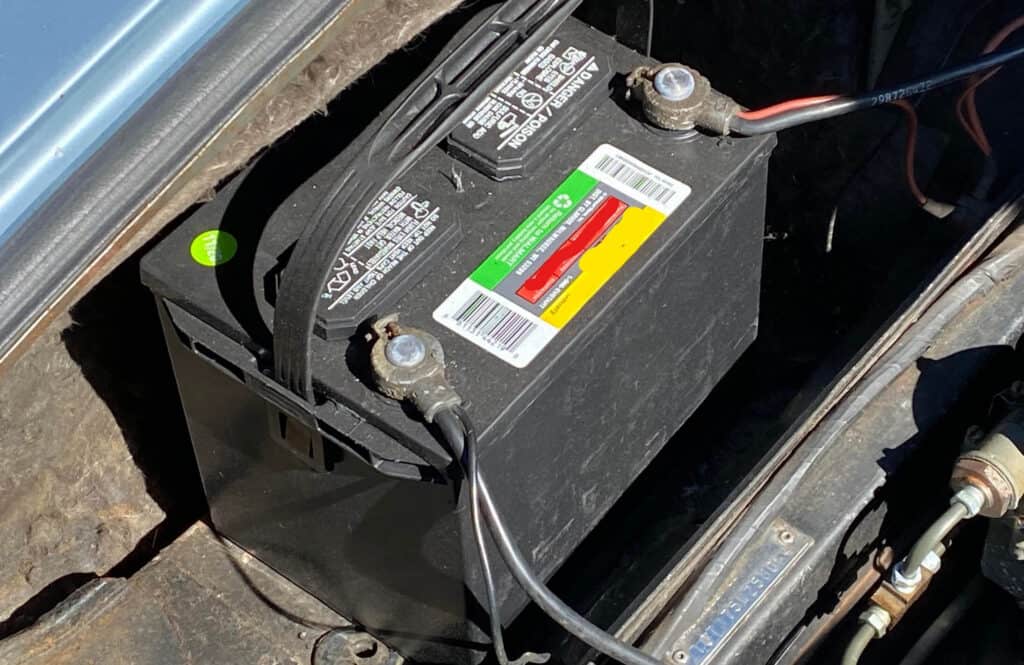Introduction: “The Connection to Power: Understanding the Importance of Selecting the Right Battery Cables for Your Vehicle”
Selecting the right battery cables is like finding the perfect bridge between your car’s battery and its entire electrical system. If you’ve ever wondered, “How do I choose battery cables?” you’re not alone. The answer lies in understanding various factors like gauge, material, length, and quality. Let’s delve into these crucial aspects.
A Matter of Size: How to Choose the Best Gauge for Your Battery Cables
• Understanding Gauge: The gauge refers to the thickness of the cable. Lower numbers mean thicker cables, which usually means a higher capacity for transmitting power.
• Typical Sizes: For most passenger vehicles, a 4-gauge cable is sufficient. It fits the amp rating of a 4 AWG battery cable for standard requirements.
• Heavy-Duty Requirements: In larger vehicles or those with higher power demands, a lower gauge like 1 or 2 might be required. These thicker cables can handle more energy flow.
• Considering Your Specific Needs: Knowing your vehicle’s particular requirements and consulting with a professional if needed ensures that you choose the right gauge.

Materials Matter: What Makes an Acceptable Battery Cable?
• Copper vs. Aluminum: Copper is usually preferred for battery cables due to its high conductivity, although aluminum can be a more budget-friendly option. Understanding what is an acceptable material for battery cables leads you to these primary choices.
• Importance of Insulation: Alongside the metal, the insulation material plays a vital role. Quality insulation prevents corrosion and wear, extending the cable’s lifespan.
• Quality Matters: Look for cables that are built with fine strands, providing flexibility and strength. This construction often ensures a stable connection and enhances longevity.
• Compatibility with Vehicle: Ensure that the chosen materials are compatible with your vehicle’s specifications. Professional guidance can help make the best selection tailored to your specific needs.
Length Considerations: Are Shorter Battery Cables Always Better?
Understanding the Importance of Length: The length of battery cables is more than a matter of convenience. Just as a shoe must fit perfectly to provide comfort and support, battery cables must be the right length to function efficiently. But are shorter battery cables always better?
Advantages of Shorter Cables: Shorter cables often mean less resistance, enabling more efficient energy flow. It minimizes the loss of power that might occur over a longer distance. Think of it as taking a direct flight instead of one with multiple layovers – it’s quicker and more efficient.
Disadvantages of Short Cables: However, cables that are too short can lead to tension and difficulty in connecting to the terminals. It’s like a shoe that’s too tight; it might look sleek, but the discomfort is not worth it. A cable that’s strained might wear out more quickly and could even become disconnected during driving.
The Need for Proper Length: On the other hand, cables that are excessively long can introduce additional resistance and potential failure points. Overly long cables might resemble a shoe that’s too loose, leading to a sloppy fit and less efficient performance.
Finding the Right Balance: The right length will depend on your vehicle’s specific setup and the route the cable must take to connect the battery to the starter or other components. Consulting with professionals or using a service like Uchaincs, which specializes in such issues, can guide you to the ideal length for your specific needs.
Quality Checks: How to Know if Your Battery Cables Are Good or Bad
Understanding Quality Battery Cables: Knowing how to recognize good or bad battery cables is crucial to your vehicle’s performance. What is a bad battery cable? It’s a cable that’s worn, corroded, or not suited to your vehicle’s demands. Regular inspection for visible wear, understanding the specific needs, such as the amp rating of a 50mm battery cable or 4 AWG battery cable, will help maintain a stable connection. Think of this like checking the pressure in your tires; keeping an eye on cable quality ensures a smooth ride.
Regular Inspections and Professional Assistance: Regular checks for signs of corrosion, fraying, or other physical damage can help you spot a bad battery cable before it becomes a problem. Is 4 gauge big enough for a battery cable? This might depend on the vehicle, so understanding the specific requirements and consulting with professionals when needed can prevent unexpected issues. Don’t hesitate to seek expert mobile mechanic services, to ensure that your battery cables are in perfect working condition. A little attention now can prevent major problems down the road.
Jumper Cables: Choosing the Right Gauge for Emergency Needs
• Importance of Jumper Cables: Jumper cables are essential for emergencies, providing a temporary connection to start a dead battery.
• 1 Gauge vs. 2 Gauge: Deciding between 1 gauge and 2 gauge cables depends on your vehicle.
– For Most Passenger Vehicles: 2-gauge cables are usually adequate.
– For Trucks and RVs: 1-gauge cables are generally preferable due to higher power demands.
• Choosing the Right Gauge: Understanding your vehicle’s power needs will guide your selection, ensuring efficient energy transfer.

Custom Considerations: Tailoring Cable Choices to Your Specific Vehicle Needs
• The Customization Concept: Customizing battery cables to your vehicle’s specific needs ensures optimal performance, much like tailoring a suit for the perfect fit.
• Knowing Your Vehicle’s Requirements: Understanding the unique specifications of your vehicle will guide the selection process.
• Consulting Professionals: If unsure, consulting with professionals can ensure that the battery cables are matched precisely to your vehicle’s needs.
• Benefits of Tailored Choices: Custom-fitted cables reduce the risk of malfunctions, improve energy transfer, and enhance overall performance.
Conclusion: “Powering Ahead with Confidence: Making Informed Choices for Your Battery Cables”
Your battery cables are the lifeline of your vehicle’s electrical system. Knowing the correct gauge, material, length, and quality checks empowers you to make informed decisions. Don’t hesitate to consult professional services like Uchaincs to ensure that your vehicle runs smoothly and efficiently. Book an appointment with Uchaincs today and stay charged with confidence.
